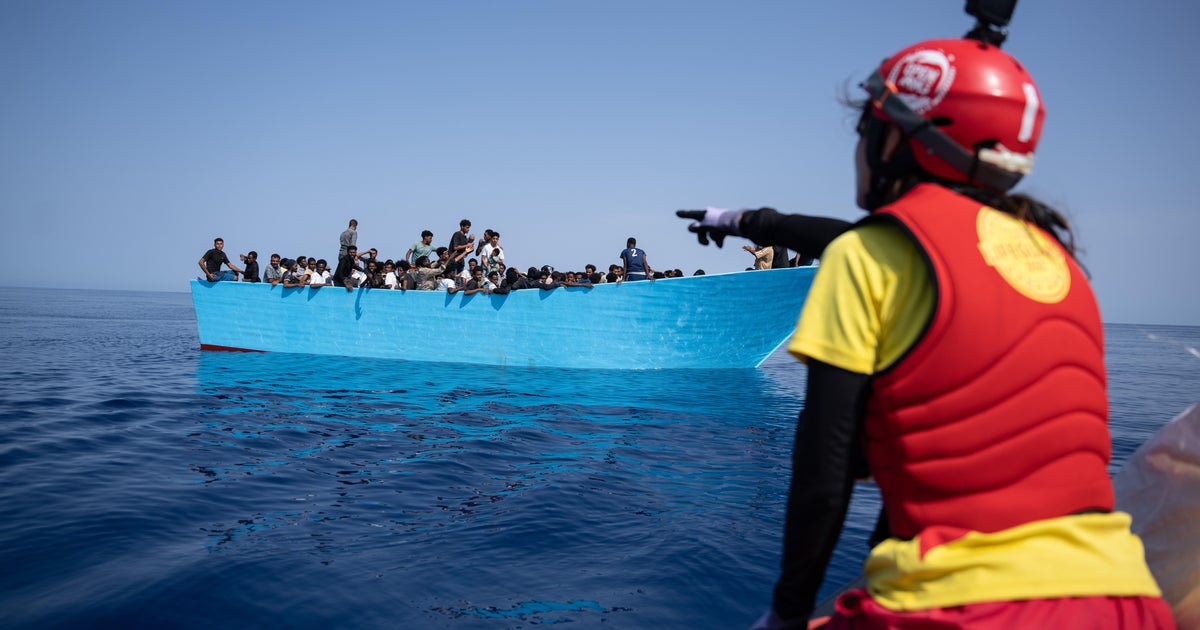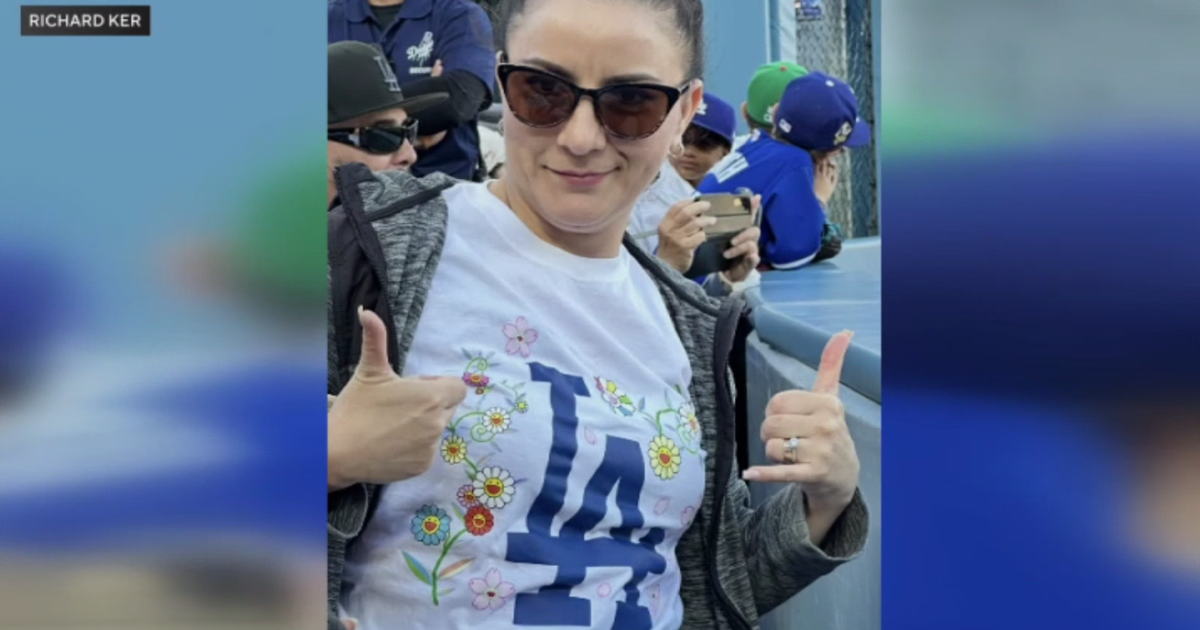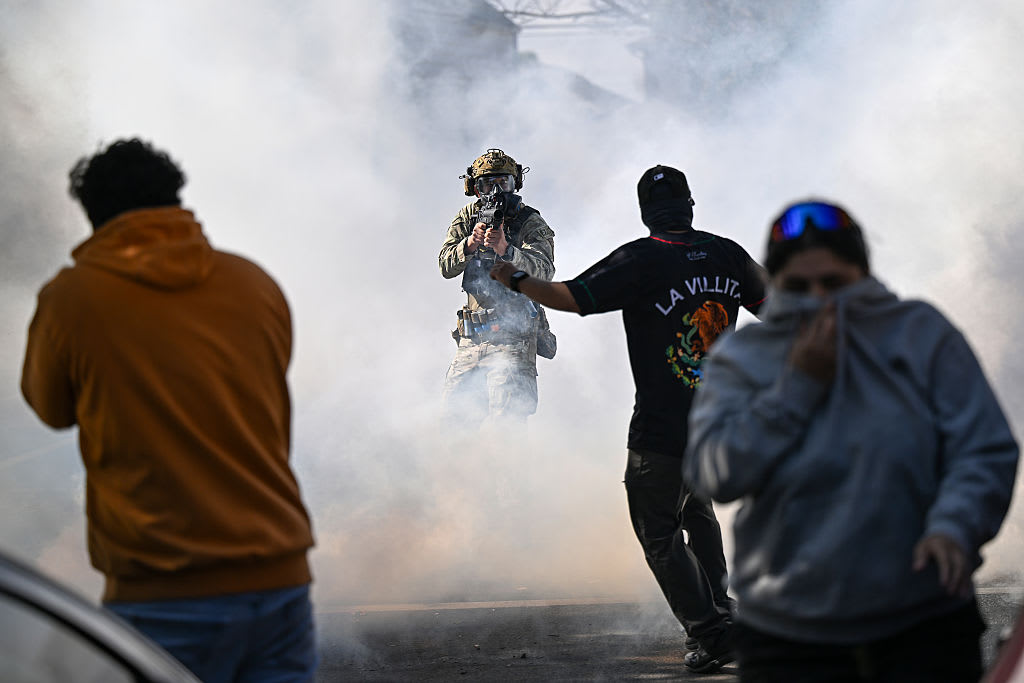What happens to migrants with COVID at the southern border
The COVID surge in Texas is largely driven by unvaccinated Americans, but there's growing concern the migrant crisis may be complicating the issue.
The city of McAllen, Texas, said more than 7,000 migrants who tested positive for COVID have been processed since February, including more than 1,500 just this past week. Most go straight into quarantine.
A makeshift processing site, run by Customs and Border Protection, is underneath the Anzalduas International Bridge that leads into Mexico. It measures well over the length of a football field with room to grow.
So many people are crossing into the U.S. right now, there's no room for them in actual buildings, and with COVID in mind, decision-makers believe this is the best option.
Once agents process those migrants, most will board buses and head to a local park turned into a temporary tent city, run by the city of McAllen and Catholic Charities. The first thing that happens straight off the bus is COVID testing.
Catholic Charities Director Sister Norma Pimentel told CBS News correspondent Mireya Villarreal migrants testing positive for COVID has been overwhelming.
"It got to a point where that space is not even that readily available because there are so many of them," Pimentel said.
In recent weeks, McAllen has seen over 1,800 migrants a day, prompting Mayor Javier Villalobos to order a declaration of emergency.
"It is very burdensome for our country, our city, and we don't budget for this. We don't deal with immigration," Villalobos said. "We shouldn't."
Across the entire southwest border, 210,000 migrant apprehensions were reported for July, a 21-year high that has caught the attention of conservative leaders across the country.
"If you just want to hopscotch across that border, they don't care about COVID," Florida Governor Ron DeSantis said. "They're letting you straight in."
A CBS News medical expert said the COVID-positive cases from across the border are relatively small. They attributed the latest surge to the low vaccination rates and rolled back restrictions in the U.S. But local officials in Texas are growing concerned.
"Initially, I didn't see it as a problem, because it was under control," Mayor Villalobos said. "So I saw no correlation between the increase in COVID within our community and the immigrants because they were isolated."
"Now I think there's an issue, because now they're going throughout," Villalobos continued. "Positive or non-positive, they get picked up, and they're going out. And we have no authority to stop it."
"So when you hear the governors talking about this being a problem now, for the health and safety of the rest of America," Villarreal said to Villalobos, "am I hearing right - you agree with that?"
"I totally agree with that," Villalobos said.
One city over, Father Roy Snipes leads Our Lady of Guadalupe in Mission, Texas.
"When we first started it would be-- the highest number would be, like, maybe 200 a day," Snipes said, but positive cases have risen.
They were using their empty schoolhouse as a makeshift shelter for the overflow of families coming across. When one of the migrants tested positive last week, they had to shut down. But with a steady band of volunteers, he's committed to reopening.
"We've got plenty of beans and we've got plenty of rice," Snipes said. "We've got plenty of room and we're doing fine."
"There's no desire for a solution?" Villarreal asked.
"Of course there is," Snipes said. "But that's beyond me. I'm a parish priest on the south side of Mission. I just-- people come and tell me we need food and we need a place to stay... If I could fix it, I would. But that's-- that's a higher science than I know about."
Homeland Security Secretary Alejandro Mayorkas will be in South Texas on Thursday to meet with local officials and talk about this. One of their biggest concerns is while they can provide shelters for all of the migrants, including the COVID-positive ones, nobody there has the authority to force them to stay.



